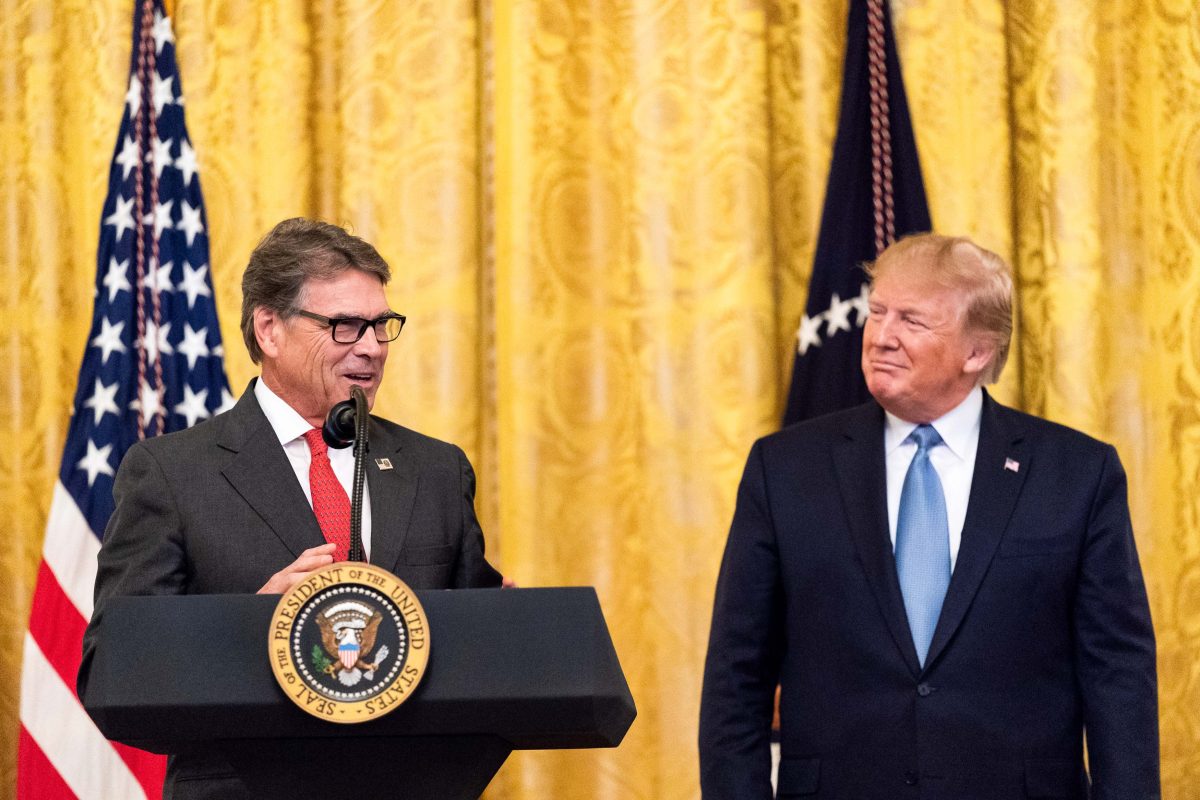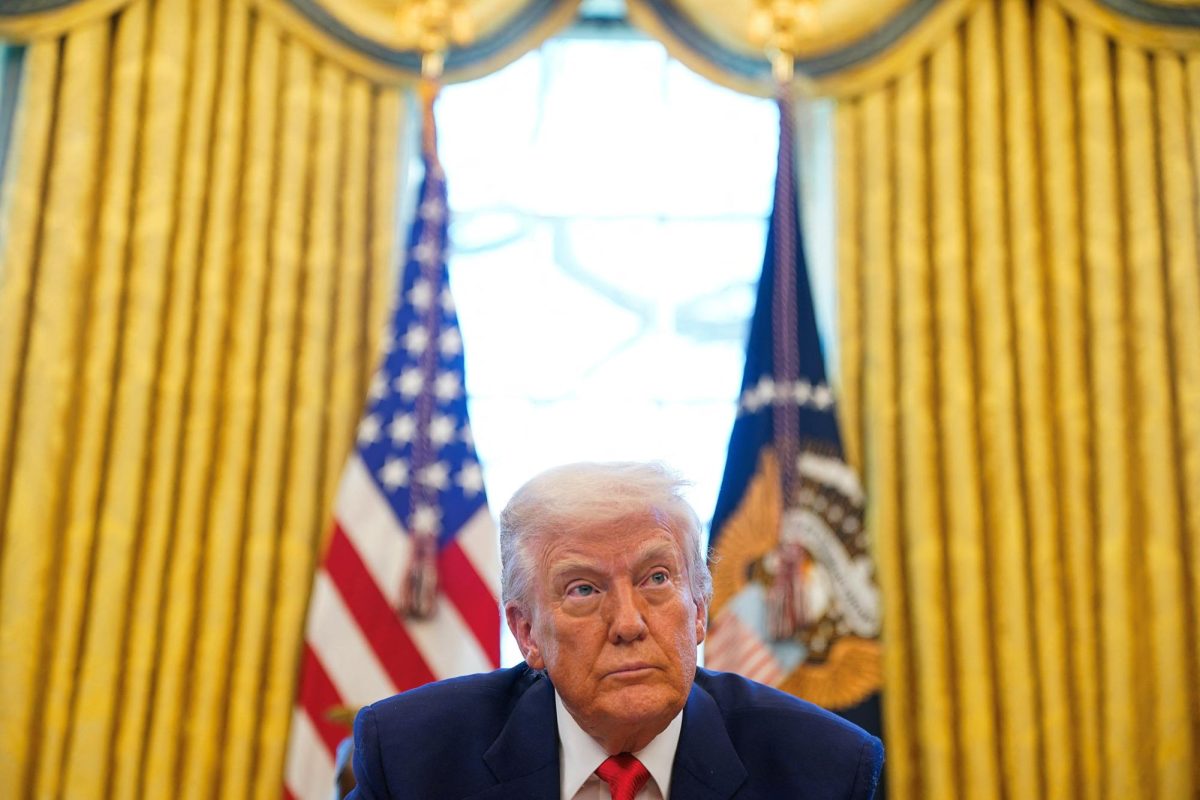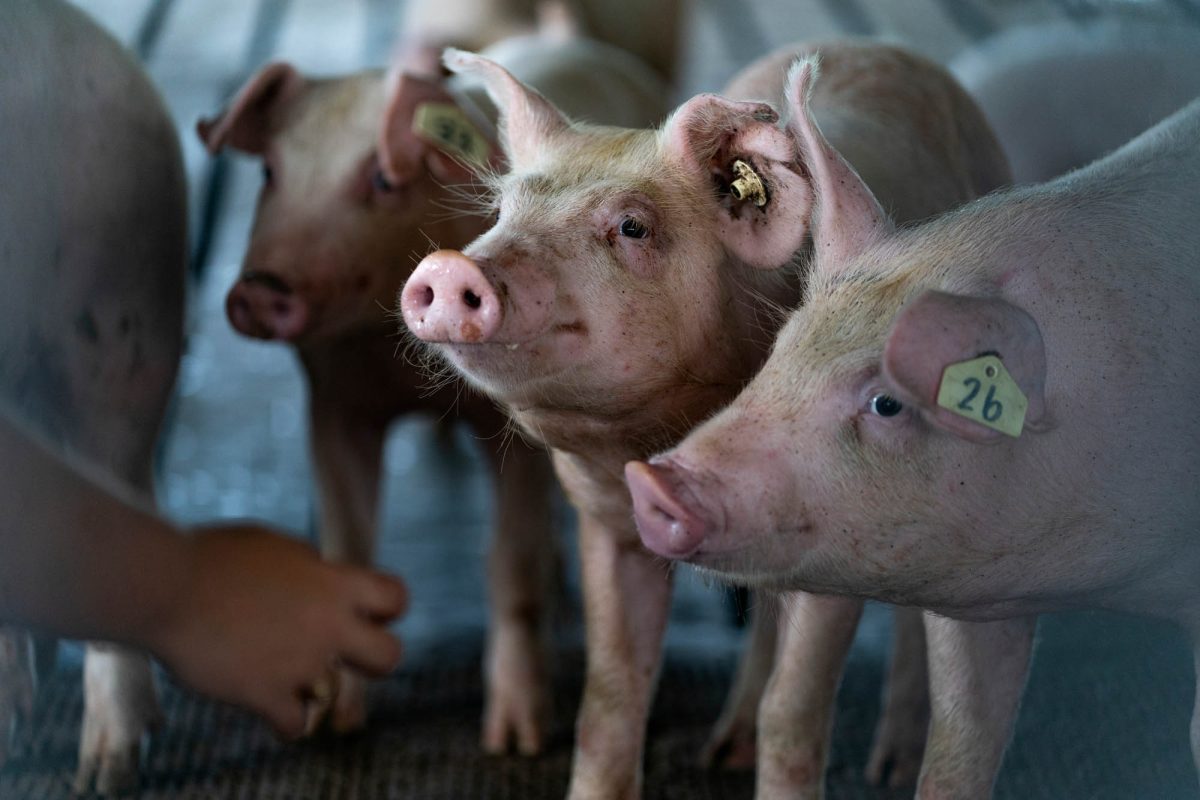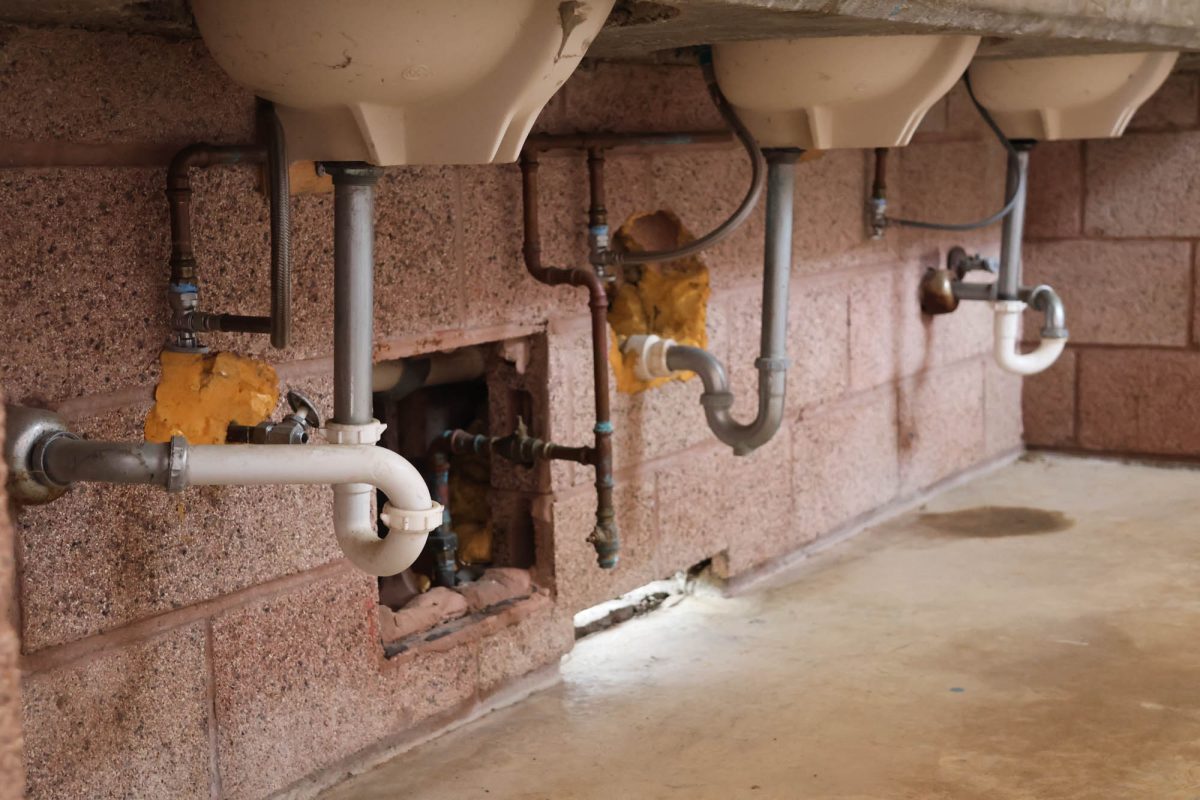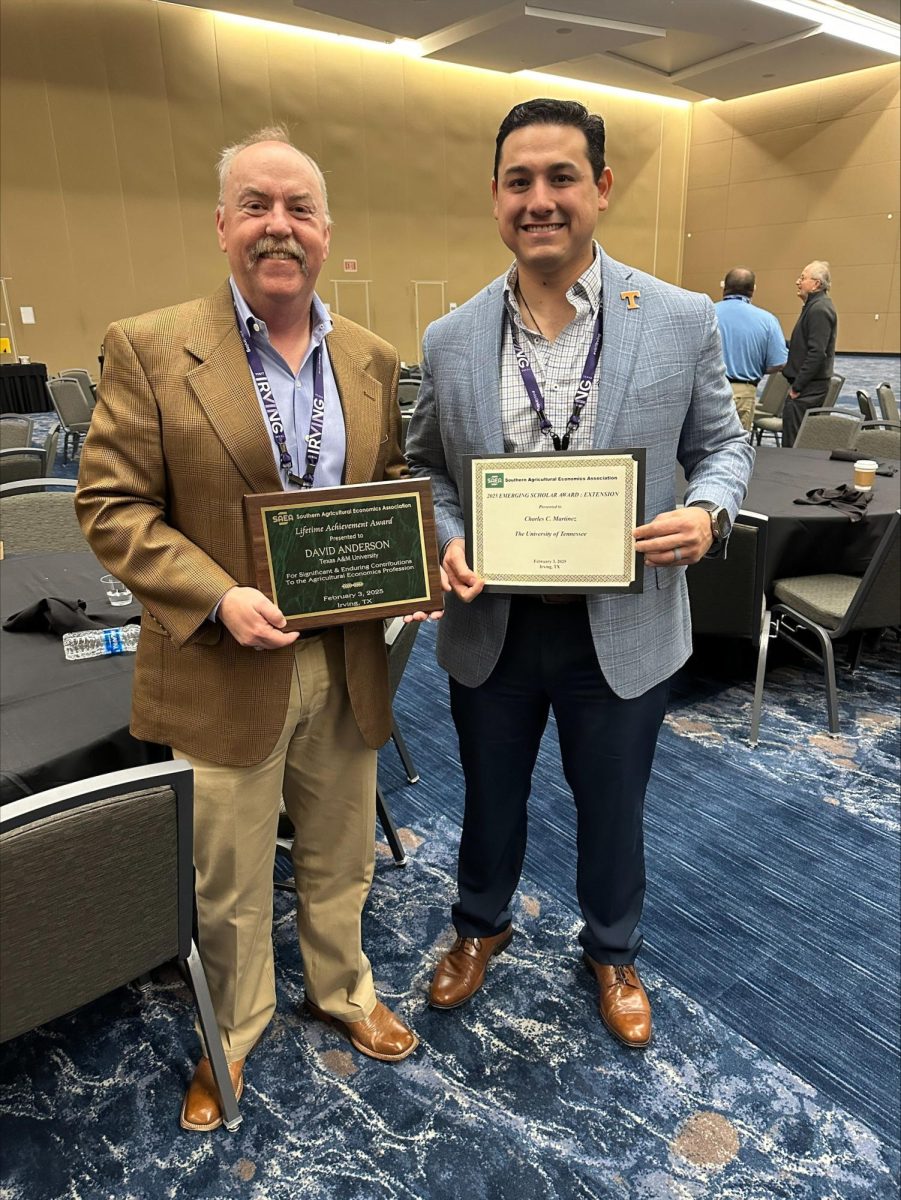In response to a formal inquiry for impeachment, President Donald Trump told House Republicans this week that Secretary of Energy Rick Perry, Class of 1972, urged him to call the President of Ukraine. Trump also sent a letter to House Democrats criticizing the impeachment inquiry and saying he would not cooperate.
Two updates have developed in the impeachment inquiry into Trump’s July 25 Ukraine phone call. According to Axios, Trump told House Republicans on a conference call that he did not want to make the phone call to President Zelensky of Ukraine, and did so only at the urging of Perry. According to Trump, Perry suggested he call his Ukrainian counterpart and discuss matters concerning a liquefied natural gas plant in Ukraine. The exact matters of discussion are unknown, but Perry was most likely referring to Naftogaz, the Ukrainian state owned gas company, according to the Associated Press.
“I didn’t even want to make the call,” Trump said, according to three sources that discussed the matter with Axios. “The only reason I made the call is because Rick asked me to.”
Just as quickly as this revelation came to light, another one quickly emerged as well. On Wednesday of this week, Trump and the White House sent a letter to House Democrats decrying the impeachment inquiry. In the letter, the Counsel to the President, Pat A. Cipollone, said the effort to impeach Trump over the Ukraine phone call is a ploy to undo the results of the 2016 election, while also branding the impeachment inquiry as unconstitutional, unfair and a violation of the basic principle of separation of powers.
By bringing Perry into the mix, Trump has opened up a new stage in the impeachment inquiry. Just how much Perry was aware of Trump’s alleged abuse of his office is unknown, but it is sure to spark interest in Democrats on Capitol Hill.
Dwight A. Roblyer, a lecturer in the Political Science Department, said to be cautious when attributing reasons as to why Perry might have urged Trump to make the phone call to Zelensky.
“At this point, they are still doing a lot of fact-finding,” Roblyer said. “There is a lot of questions as to what we actually know and don’t know. I think it’s far too early to characterize any sort of conversation or role of anybody with regards to that.”
It should be noted that Trump, according to the restructured memorandum of the Ukraine phone call released by the White House, never brought up the topics which Perry is reported to have asked him to discuss with Zelensky.
Sarah A. Fulton, an associate professor in the Political Science Department, said Perry may have been trying to conduct normal diplomacy with Ukraine.
“I don’t think that there was anything, based on my understanding, nefarious,” she said. “I think Sec. Perry was trying to do his job and promote cooperation between the United States and Ukraine.”
By holding a full vote of the House and setting ground rules, it could make the inquiry appear more transparent, Fulton said. However, the President does not decide what constitutes an impeachable offense.
“Granted, that’s a precedent,” Fulton said. “On the other hand, the President doesn’t have the power to tell the House how to conduct its own business. The Constitution says that the House shall have the full power of impeachment.”
Fulton said Democrats are skeptical that Trump will cooperate with the investigation, even if they fulfill his request for a full vote on impeachment in the House and allowing full due process rights, like to call witnesses and review evidence. Despite this, Fulton said that giving Trump some protections, such as an attorney, may also help bolster the appearance of the inquiry.
An impeachment inquiry is akin to an investigation, in which the impeachment serves as an indictment and the court proceedings and verdict are carried out in the Senate.
“At some level, the President is kind of jumping the gun with saying he is not going to support or participate in the House probe,” Fulton said. “This is just a probe of gathering information that will then be presented to the Senate, at which time they will conduct a trial and allow the President to cross examine witnesses and have the President’s attorneys present.”
It came to light Thursday that two of Rudy Guiliani’s colleagues were arrested for campaign finance violations, which includes flooding Trump’s campaign with Russian money. Guiliani, the President’s personal attorney, is at the heart of the impeachment inquiry into Trump’s July 25 phone call. According to multiple news outlets, the two colleagues, Igor Fruman and Lev Parnas, were also involved with the ousting of the American Ambassador to Ukraine, Marie Yovanovitch.
Parnas, according to the indictment, sought the assistance of “Congressman 1” in helping the Trump administration get rid of Yovanovitch. According to NBC News, Pete Sessions, former Congressman in the Dallas area 32 District, has been revealed as Congressman 1.
According to the indictment, Sessions was sought by Parnas to help bolster the ouster of Ambassador Yovanovitch and was also the recipient of $3 million in campaign donations from a Trump-aligned Super PAC. Sessions efforts were “in line with a broader concern among members of Congress that the administration wasn’t moving swiftly enough to put new ambassadors in place,” according to a previous statement he gave to the Wall Street Journal.
Trump blames Perry for phone call at center of impeachment inquiry
October 10, 2019
Photo by via The White House Photostream
July 8, 2019 Rick Perry addresses President Trump’s remarks on America’s environmental leadership.
0
Donate to The Battalion
$2790
$5000
Contributed
Our Goal
Your donation will support the student journalists of Texas A&M University - College Station. Your contribution will allow us to purchase equipment and cover our annual website hosting costs, in addition to paying freelance staffers for their work, travel costs for coverage and more!
More to Discover




